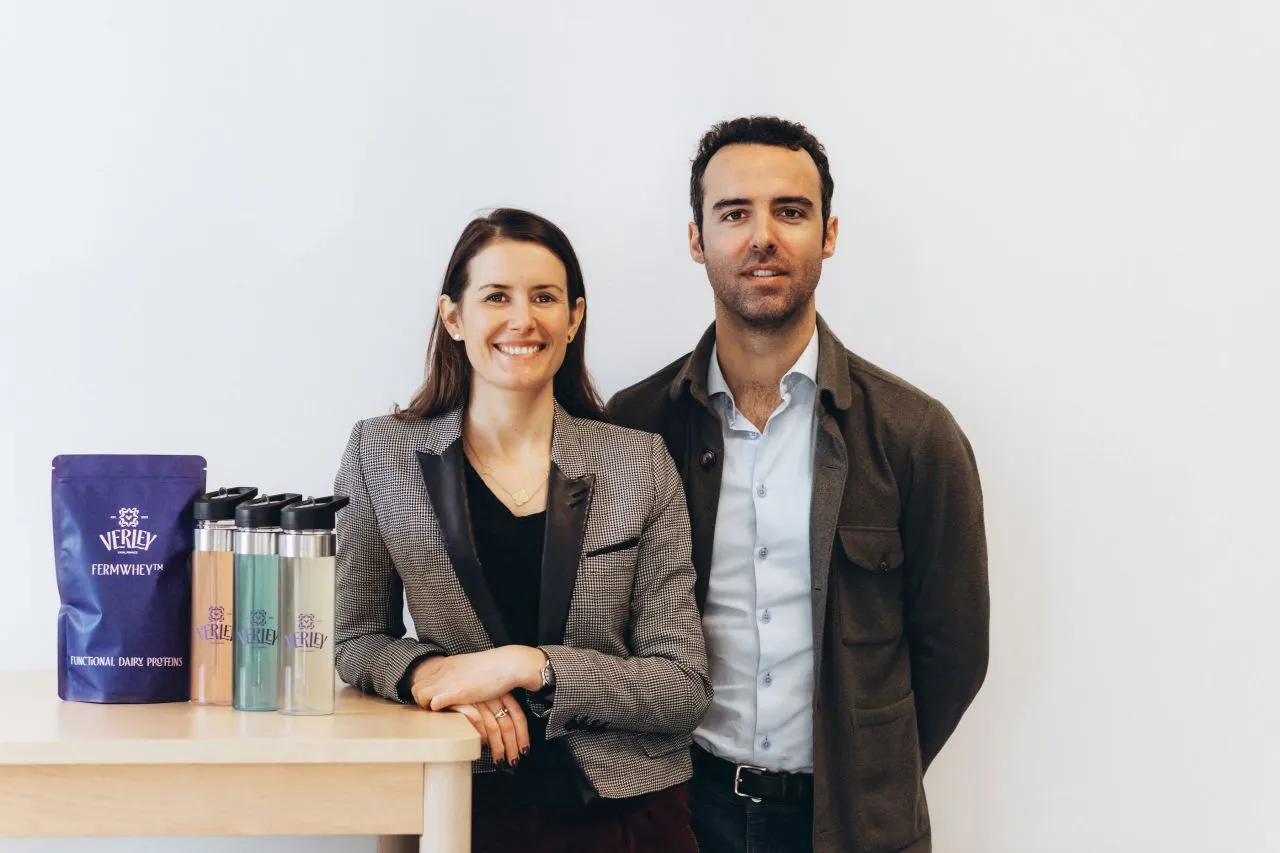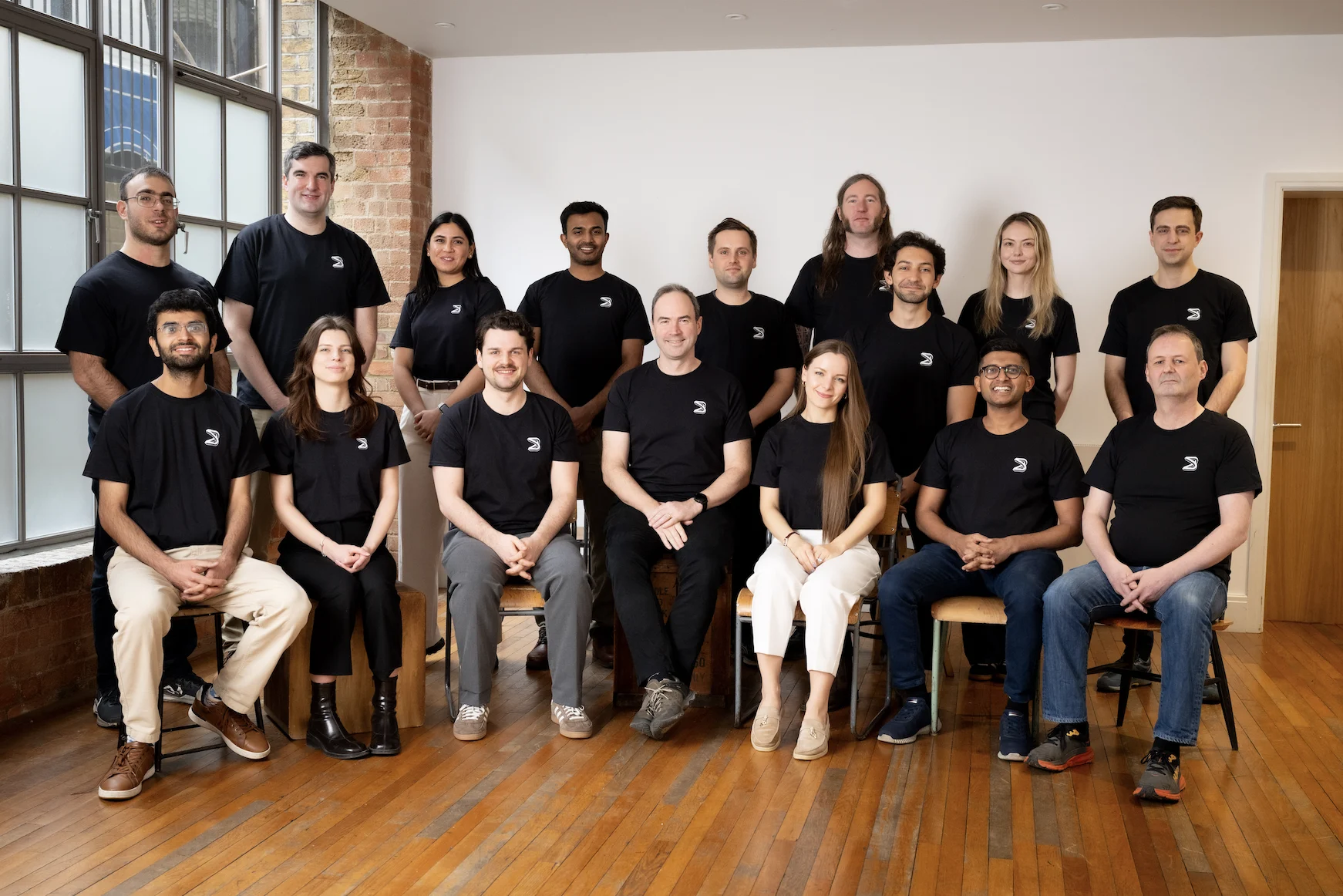Unfortunately, having a great business idea is just the beginning and there is a lot ahead of you. When a startup has a team, product, business model, and even a few clients, it will eventually need investment to grow faster. It is not difficult at all to find the first financing as there are many grants, accelerators and seed funds available on the market. The odds are in your favor, but we advise you to choose wisely. The first funding round is usually the most difficult and time-consuming, and a lot depends on it. Additionally, I still see that startup founders come unprepared for the meeting with a VC fund. So how should the founders handle this most important investment? In order to find out, let’s start with answering a few questions below.
1.THE TEAM
Do I have the right ingredients?
Let’s start with the obvious point - the core ingredient for making a successful startup is a good team of course and everyone from the VC will tell you that. Your product may change, the market can change, a pandemic may unexpectedly break out (who would suspect that!), which will force the team to change the direction of the project's development - that's why making investment decisions at early-stage companies relies primarily on a strong founding team. After receiving a pitch deck, we want to meet the team members, see how they talk about the product, how they define the problem and what is their plan for the future.
We would like to know if the team has experience and expertise in a given sector, if they have a network of contacts in a given area, complementary competencies, any past successes and previous accomplishments and if the founders have previously cooperated with each other on other projects.
In addition, we often check whether the team is developing the product internally or externally. Having an in-house tech team always brings you additional points but at the early stage of development and limited budget startups often decide to develop their product with the help of a software house. In this case, it is important to hire an experienced CTO who can manage the work of an external software house team.
A great idea for a startup getting ready to obtain financing may be to establish cooperation with industry experts, who can be shown in the pitch deck as advisors. A person from the industry being involved in the project from an early stage confirms its value and builds investors’ trust. In addition, a high-ranking person who believed in your project at the beginning can help you open the right door later on.
You can always mix different approaches in order to see what works the best for you. Investors want to know that you have the best team to execute your business idea—after all, they’re investing in you and your idea, but a great idea means nothing without a great team behind it.
2. THE TRACTION
Am I ready? Is it the right moment?
Is your business idea compelling enough to attract venture capital investors? You need to find out if you fit into your market and how you can grow in this space. It is important for VCs to see whether your company has customers, opinions, references, if you are undergoing some pilots, demonstrations, have any strategic partnerships, publications, awards or other achievements. Investors want to see that the founders have validated their idea on the market, conducted specific research, and thus have tests, opinions and references. In the beginning, it is a good idea to raise a small amount of money from angels or from friends & family first in order to reach important milestones that will make your business more marketable to venture firms. The ability to indicate a reasonable growth path reduces the risk and makes companies feel more confident.
Moreover, before getting started, it is essential to ask yourself the following questions: is this the right time for you and your company to raise funds? At what stage of financing is your company located? This will notably influence the profile of your next contacts and the type of fundraising you are going to target. Is this a seed phase? Is this your very first fundraiser (seed) or perhaps you had someone investing in your business small money before?
3. PRIOR INVESTMENT
Is having money before a good argument for the VC?
As mentioned before, it is possible to raise a small amount of money from so-called FFF - Friends, family and fools, which actually may be a good place to start. The fact that there was a previous investment from FFF or an individual investor (especially at the pre-seed stage) is a positive sign, as VC funds can build opinions about the project based on the experience of the current investor and see how effectively the founders used the first capital. In practice, it often happens that a private investor is not familiar with the VC standard and could propose investment terms that will later be unacceptable for the funds (for example, he/she will take too many shares), so be mindful of that. The first investment should give room for the next rounds by not breaking the cap table. In a perfect scenario founders after the seed round (from the VC) should still have around 80% to have room for the next round investments.
More important than how much you have raised in the pre-seed round is how you used that capital, what it was spent on and which milestones you have achieved. Those are the arguments helping you to raise another round.
4. FINANCIAL MODEL AND VALUATION
What is your valuation?
A well-built financial model determines how much funds you need until reaching profitability (i.e. obtain the so-called break-even point). If the model shows that the company will be unprofitable for more than 24 months (e.g. due to the ongoing R&D process, product development or building coverage for the application - without charging users yet), divide the investment into several rounds and ask investors for funds that will last for the next 12-24 months. A shorter period is not recommended, as you will have to re-engage in the process of finding an investor almost immediately. It is also not advisable to raise too many funds, as they will dilute your shares too much at a lower valuation compared to the valuation in two years. Assuming that, thanks to the funds obtained from investors, the value of your company will increase until the next round of financing.
A very important element at this stage is to establish the expectations regarding the valuation of the company. A question frequently asked by investors, already at the first meeting, is how much funds the company needs and what is the proposed valuation. The founders often state how many percent in the company they are willing to give in return for the cash they have raised, not always realizing that this implies the company's valuation, e.g. EUR 1 million for 10% of shares, they value the company at EUR 10 million post-money (after investment) and EUR 9 million pre-money (before investment). So, before you specify how many percent in the company you propose to the investor, prepare yourself by valuing the startup on the basis of similar transactions (preferably on the local market) and looking for indicators representative for your business (e.g. for the SaaS model it is a multiplier of MRR), etc. However, in the case of startups, the method of company valuation is certainly not the DCF method (often used by financial advisors), which works rather well in the valuation of mature companies with predictable revenues and costs.
It could be useful to identify who your top competitors are and gather information about them - that includes the amount of capital they have raised, revenue, pre- and post-money valuations, financing history, deal multiples or series terms.
5. RIGHT INVESTORS
How to choose the best investors and get to them?
Once you have convincing arguments to raise the round, a well-thought-through financial model and the investment offer, you are ready to start looking for the investor.
We would advise against sending your pitch deck to every fund on the market - as it is one of the most common mistakes committed by fundraising startups. From time to time we receive those emails where the founder encloses all possible funds in the copy of the message - don’t do it. This send-them-all method means you'll get a lot of bounces right at the start and it's easy to take it personally or start believing that something is wrong with the business. You should know that VC’s have different profiles and their own investment criteria so it’s worth checking it before contacting them.
More and more often we hear from other founders that apart from financial investments, they are also looking for smart money. Very good! Smart money is only possible if you find a fund that has expertise in a given area, so try to find venture capital firms that are the best possible fit for your startup and your deal. The more closely your startup and you (as the founder) are aligned with the needs of the venture firm, the more likely you’ll find a VC fund willing to write you a check. Good way is to start by making a list of potential investors and prioritize the list. Having identified those that are most likely to invest in your business, you can begin making the necessary connections to be able to present your startup pitch deck. Also, if your list includes key prospects you don't already know, work on your existing connections to see if any of them could make an introduction. Use LinkedIn and other social networking tools as these are great resources for this type of professional networking - it's even better when the startup is found by the fund through its own research. In the investment world, relationships are key, and you’re more likely to get 15-20 minutes with someone through a warm connection. Read up on their background and come prepared with strategic questions and insights. If you don’t have any warm connections, use social media to your advantage - start a conversation by e.g. following the content of your target firms – engage with, compliment, and share it. Venture capitalists often talk about events they’ll attend. Be there, find a few minutes to chat with them, and get prepared. You also can find them by joining matchmaking platforms like Vestbee which connects startups with global investors and opens doors for successful fundraising.
If you want to close the funding round - it is worth being visible! What does it mean? We recommend you to apply to various startup competitions, take part in startup events, consider an accelerator that will give you the opportunity to appear in a demo day - presentation to investors or publication in the media. All this could significantly increase your chance of building interest and being noticed by the VC fund.
Another research you can do is to reach out to the portfolio companies of the fund you are interested in. When you ask for smart money investors will tell you how they help aside from the investment. When you really want to know how they help try to speak with founders from their portfolio companies, they will tell you all about that.
6. THE STARTUP PITCH
How to pitch your startup and tell a perfect story?
Raising venture capital is easier with a perfect pitch deck, so you really have to put some effort into it. A startup’s pitch is not just the presentation being shown to VCs, it should be considered as the ultimate communication plan, with a clear idea of the problem the company hopes to solve, how they plan to solve it, who will be working to do this, what is the technological advantage of the solution, who are the main competitors, how they want to make money and what is their go-to-market strategy.
Pitching to investors is continuous work, you need to improve the pitch all the time, e.g. when new questions arise. In addition, when talking with various funds, you will notice that each of them asks similar questions and you have to repeat yourself many times. It is worth collecting all the questions in one place by creating the so-called FAQ - frequently asked questions list. This can be a very valuable document that could save you a lot of time and impress investors.
You also need to prepare due diligence materials as soon as possible. Most often, we ask projects to send financial documents such as P&L statements, cash flow forecasts, cap table, product roadmap, planned R&D works and detailed comparison with the competition. I am positively impressed by projects when asked to provide additional documents, send them right after our call. Your financial documents tell your investors a story - how you manage money, how you plan to grow your business, what are your milestones etc. Working with a strategic startup accounting expert to get your books in order (before investors start looking) could be a good idea too.
7. THE LONG TERM VISION
Where do you want to go?
When preparing to raise a funding round, it is worth considering the long-term vision of the project. Ask yourself how do you want to become a billion-dollar company? What are the stages to get there, why now, how big is the market you are addressing, how much of this market you plan to bite, how do you want to grow and scale outside your country, what steps will take you there, who is your competition and how do you want to build a competitive advantage in a long run.
The initial secret sauce of the startup might be a lot of different things - it could be an algorithm, a feature, unique technology, a strong founding team or a hardware component. The important thing is that you need something special to convince venture capital investors to invest in your business. You’re selling not only a product, but also yourself, thus you need to have a solid argument why they should invest in you and why now is the right time.
At Shape VC we invest in seed and early-stage projects, mostly B2B software, with R&D components that want to scale globally. We provide up to 250K EUR investment taking startups from pre-traction to product-market fit. As an institutional fund, we want to know how you plan to develop your business and what is your endgame, as we have a defined investment horizon. Usually, funds engage in the project for three to a maximum of six years. After the fourth year, it is very likely that they will exit the investment, of course, ensuring a return. This is why you should also think through your exit strategy and have it planned.
I hope that these few points will help you better prepare for the talk with the investor and make the whole process quick and efficient. I also encourage you to talk to experienced founders who have already completed this process and can share with you valuable insights.
Related Posts:
5 Tips On How To Kick Off Your Startup And Attract Investors (by Alex Serdiuk, CEO, Respeecher)
Most Popular Questions VC Fund Will Ask Your Startup (by Leszek Orłowski, Investment Director, bValue)
VC Tips For Successful Startup Fundraising (by Magdalena Balcerzak, Manager, Vestbee)







